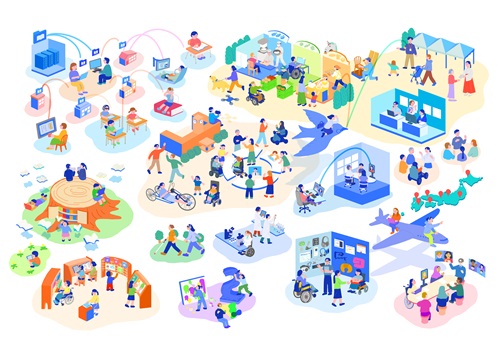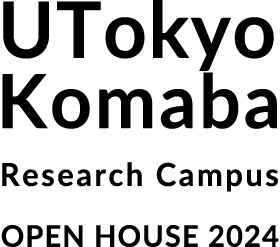
We are working on a practical research project to change the way we learn and employment to be inclusive.
Overview
The following five projects are conducted by the Kondo Lab and focus on the inclusion of people who have difficulties in learning and working.
1.DO-IT Japan( https://doit-japan.org/ )
2.Access Reading( https://accessreading.org/ )
3.IDEA( https://ideap.org/ )
4.PHED( https://phed.jp/ )
5.AEMC(エイメック:https://aemc.jp/)
- Instructor / Laboratory
- Kondo Takeo Lab
June 7 (Fri) 10:00-17:00
June 8 (Sat) 10:00-17:00
1.DO-IT Japan
DO-IT Japan is a leadership development project that supports young people with disabilities and illnesses to go on to higher education and other higher education, and then into employment and careers. It is a centre for research and practice on inclusive education systems, including collaboration with young people with disabilities and the use of ICT through industry-academic and international cooperation.
2.AccessReading
AccessReading produces and provides audio materials of approved textbooks for students and schools with special needs who have difficulties in reading.
3.IDEA
IDEA (IDEA) is an action research project to implement employment systems in local communities that are inclusive of diverse people who have been excluded from employment opportunities.
4.PHED
PHED is a platform project on disability and higher education that the University of Tokyo has been working on since 2017. It forms a platform for collaboration between universities, companies and others as a basis for an organisational approach to support students with disabilities.
5.AEMC
The AEMC has two functions: to act as a data management organisation to support the smooth sharing of textbook data between the organisations that produce accessible textbooks for students with disabilities and the publishers that produce them, and to conduct research on how to make better textbook data. The centre has two functions.
Barrier-free access
If you need barrier-free access, please contact the contact point (Asami: asami@at.rcast.u-tokyo.ac.jp).
